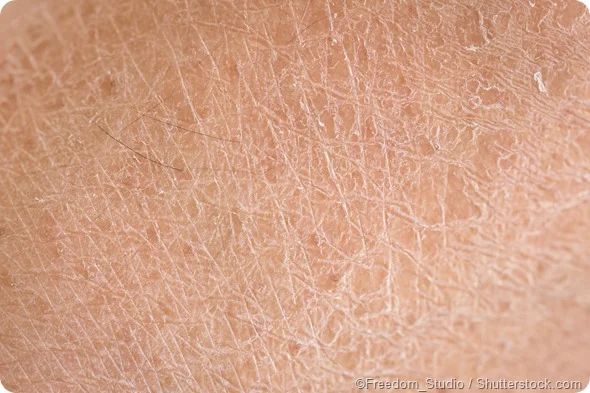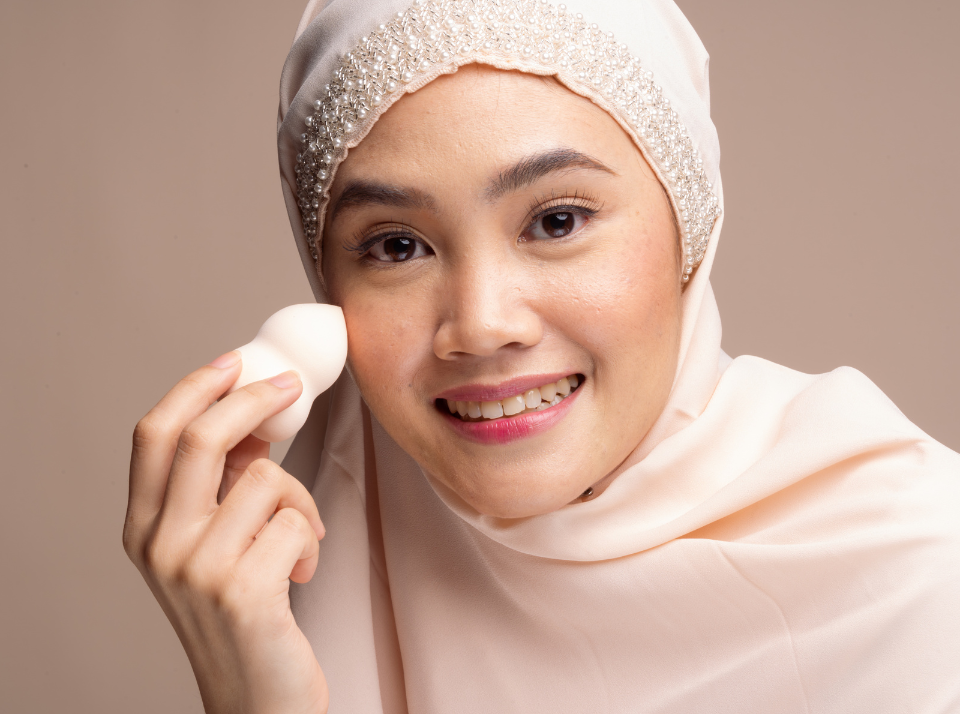
Soalan-soalan kebiasaan
June 19, 2021
Kepentingan Memilih Produk Penjagaan Kulit Halal untuk Muslimah: Panduan Lengkap
July 9, 2024Dry skin is a common skin issue that affects people of all genders and ages.
When this occurs, it can significantly impact both appearance and long-term health.
In this article, we will discuss the problem of dry skin and effective tips to manage it from inside and out that are proven to work.
What is dry skin?
Dry skin is a condition where the skin loses moisture, such as natural water or oils, leading to rough, cracked, dull, and sometimes very itchy skin.
Causes of dry skin problems
This issue can cause skin to peel and itch, necessitating additional care and moisturization to maintain its health. Here are some reasons why this skin issue occurs:
- Age
As age increases, the skin naturally becomes thinner and loses moisture more easily.
This is a common change in the aging process that includes various skin changes such as:
- Reduced sebum gland activity
- Decreased natural skin hydration
- Lower levels of protective lipids in the skin
- Reduced blood flow to the skin
- Decreased sebum production in the skin
Therefore, it’s no surprise that individuals over 40 years old require regular use of moisturizers to prevent dry skin.
- Weather / climate
In addition, environmental factors like hot, dry climates contribute to this skin issue.
For instance, individuals living in dry climate areas, such as deserts, are more likely to experience dry skin due to the environment’s tendency to draw moisture from the skin. The same applies to those living in cold seasonal countries where differences in temperature and humidity levels are factors.
- Type of occupation
People working in certain environments are more prone to dry skin. For example, nurses, plumbers, and hairdressers often expose their skin to water frequently throughout the day, leading to dry, cracked, and dull skin.
- Health conditions
Individuals with a history of skin conditions like atopic dermatitis or psoriasis are more likely to experience skin issues. This is due to changes in skin structure that facilitate moisture loss, increasing the likelihood of dry skin.
- Lifestyle factors
Other lifestyle factors can also increase the likelihood of dry skin.
For example, high chlorine levels in some swimming pools can dry out the skin of regular swimmers. Additionally, prolonged or hot baths, as well as the use of certain soaps, detergents, and shampoos, can contribute to dry skin.
- Daily diet
Certain diets, such as low-fat diets, can lead to a deficiency of essential fatty acids (EFAs), which are crucial for maintaining skin moisture. Similarly, excessive alcohol consumption or large doses of certain medications can increase the risk of dry skin.
Symptoms of dry skin
Symptoms of dry skin range from mild to severe and can affect specific body parts such as the face, hands, feet, elbows, and knees. Common symptoms of this skin issue include:
- Flaky or rough skin texture
- Excessive itching
- Infection
- Skin peeling or stinging
- Flaking skin
How to prevent dry skin?
Lifestyle changes can help prevent and alleviate dry skin. You can try the following:
- Avoid using hot water for bathing
- Ensure your bathing time is less than 10 minutes
- Use moisturizing soap when bathing
- Apply moisturizer immediately after bathing
- Pat dry your skin instead of rubbing
- Moisturize dry skin at home
- Drink plenty of water
- Adjust your skin care routine as recommended by a doctor
It’s also crucial to choose the right moisturizer for your skin type. For very dry skin, look for products based on petrolatum. During summer, consider switching to lighter, water-based lotions. Lotions containing grape seed oil and antioxidants can also help retain moisture in your skin.
Tips for buying products for dry skin
When choosing products for dry skin, consider these tips:
- Choose moisturizing products Look for products specifically formulated for non-moisturizing skin with high moisturizing content such as glycerin, hyaluronic acid, and natural oils like almond, argan, or jojoba oil.
- Pay attention to the label Ensure the product does not contain ingredients that can irritate your skin, such as strong fragrances or alcohol. Choose hypoallergenic and non-comedogenic products to avoid clogging pores.
- Choose products with natural ingredients Opt for gentler natural ingredients suitable for dry skin, such as products containing aloe vera, oatmeal, shea butter, or honey.
- Choose products suitable for your skin type Consider your overall skin type, even if you have dry skin. If you have sensitive skin or are prone to acne, ensure the product you choose is suitable for your skin condition.
- Try product samples first Before purchasing a product, try a sample to see if it suits your skin.
- Read user reviews Before buying, read reviews from other users who have similar skin issues.
- Consult a skin expert If you’re unsure which product is right for your skin, consult a skin specialist or dermatologist for tailored advice.
By following tips like these, you can select the right products to care for your skin.
We hope our insights into dry skin issues provide you with valuable information and knowledge for reference.



